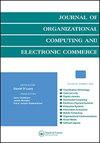影响我国跨组织系统海外部署的因素:案例分析
IF 1.9
4区 管理学
Q3 COMPUTER SCIENCE, INFORMATION SYSTEMS
Journal of Organizational Computing and Electronic Commerce
Pub Date : 2019-07-03
DOI:10.1080/10919392.2019.1583811
引用次数: 3
摘要
摘要由于中国市场潜力巨大,许多国际企业正将生产线迁往中国。伴随着生产离岸外包的是信息系统的转变,以确保国内外的生产流程保持高效和有效。然而,许多企业在中国部署离岸信息系统时遇到了问题,尤其是当这些系统是跨组织边界的组织间系统(IOS),涉及参与者之间关系的管理时。因此,本文旨在通过台湾个人电脑制造商与其中国合作伙伴之间基于电子采购系统的供应链关系的案例研究,确定中国离岸组织间系统的关键成功因素。尽管台湾用户很好地使用了该系统,但就中国用户的拨款投诉而言,该系统在中国的表现相对不令人满意。基于公司的关系观,提出并检验了四个内部监督办公室特定的关系因素:(1)内部监督办公室的特定资产,(2)内部监督机构的知识共享程序,(3)系统互补性,以及(4)内部监督办理。案例分析表明,有效的内部监督办公室治理对中国离岸外包结果的影响最大,而系统互补性的影响最小。本文章由计算机程序翻译,如有差异,请以英文原文为准。
Factors Affecting the Offshore Deployment of Interorganizational Systems in China: A Case Study Analysis
ABSTRACT Because of the significant market potential in China, many international enterprises are moving their production line to China. Accompanying production offshoring is the shifting of information systems to ensure that the production processes remain efficient and effective both at home and abroad. However, many enterprises encounter problems while deploying offshore information systems in China, especially when the systems are interorganizational systems (IOS) that span organizational boundaries and involve the management of relationships among participants. Therefore, this paper aims to identify critical success factors of offshore interorganizational systems in China through a case study of a supply chain relationship based on an e-procurement system between a Taiwanese personal computer manufacturer and its Chinese partners. Although this system had been well used by Taiwanese users, the performance of this system in China was relatively unsatisfactory in terms of grant complaints from Chinese users. Based on the relational view of the firm, four IOS-specific relational factors are proposed and examined: (1) IOS-specific assets, (2) IOS knowledge-sharing routines, (3) system complementarity, and (4) IOS governance. The case analysis reveals that effective IOS governance most strongly affects the results of offshoring in China, whereas system complementarity has the least influence.
求助全文
通过发布文献求助,成功后即可免费获取论文全文。
去求助
来源期刊

Journal of Organizational Computing and Electronic Commerce
工程技术-计算机:跨学科应用
CiteScore
5.80
自引率
17.20%
发文量
7
审稿时长
>12 weeks
期刊介绍:
The aim of the Journal of Organizational Computing and Electronic Commerce (JOCEC) is to publish quality, fresh, and innovative work that will make a difference for future research and practice rather than focusing on well-established research areas.
JOCEC publishes original research that explores the relationships between computer/communication technology and the design, operations, and performance of organizations. This includes implications of the technologies for organizational structure and dynamics, technological advances to keep pace with changes of organizations and their environments, emerging technological possibilities for improving organizational performance, and the many facets of electronic business.
Theoretical, experimental, survey, and design science research are all welcome and might look at:
• E-commerce
• Collaborative commerce
• Interorganizational systems
• Enterprise systems
• Supply chain technologies
• Computer-supported cooperative work
• Computer-aided coordination
• Economics of organizational computing
• Technologies for organizational learning
• Behavioral aspects of organizational computing.
 求助内容:
求助内容: 应助结果提醒方式:
应助结果提醒方式:


